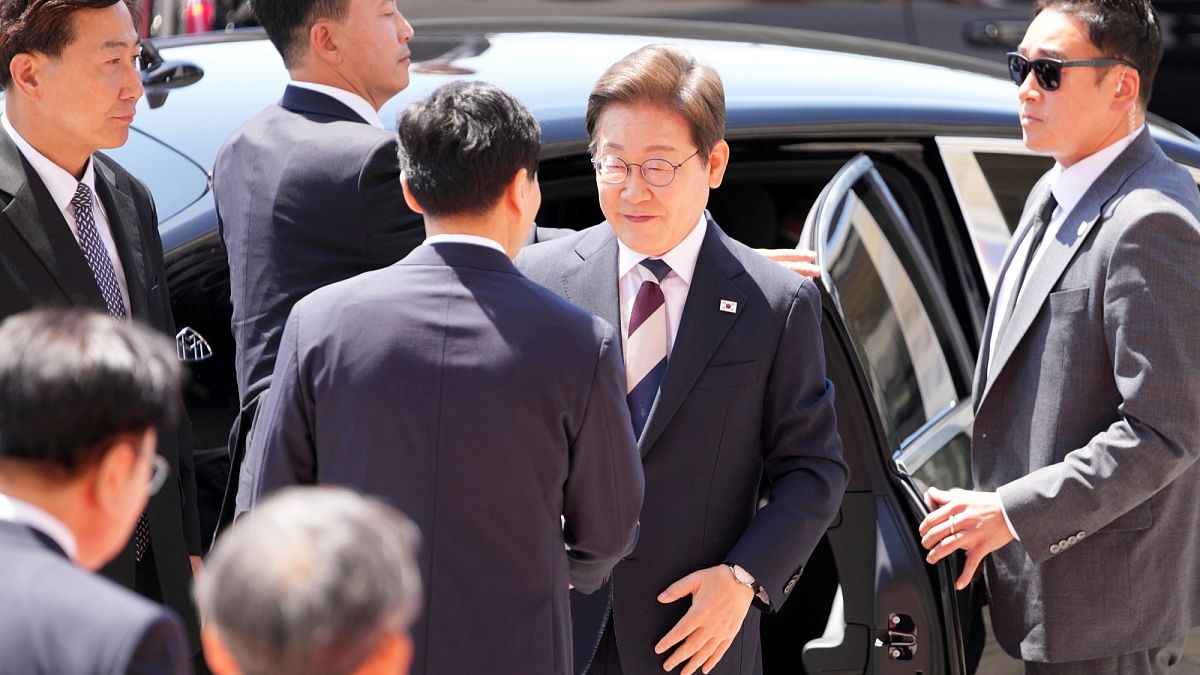South Korea’s new president Lee Jae-myung has promised to recommence talks with North Korea with the aim of securing peace on the Korean Peninsula.
Lee, who was sworn in early on Wednesday following his victory in a snap election, outlined key policy goals for his five-year term, from foreign and economic policy to healing the country’s political divide.
In his inaugural address to the country’s National Assembly, Lee pledged to deal with North Korean nuclear and other military threats with “strong deterrence” bolstered by the South Korea-US military alliance.
However, he also said he would restart talks with Pyongyang, which have not taken place in years, vowing to “open a communication channel with North Korea and establish peace on the Korean Peninsula through talks and cooperation”.
How this will be received remains unclear, as Pyongyang has rejected talks with Seoul since 2019.
While critics of the liberal have previously accused Lee of looking toward China and North Korea and away from the US and Japan, the leader also stressed that he wanted to grow the trilateral Seoul-Washington-Tokyo cooperation.
“Through pragmatic diplomacy based on national interests, we will turn the crisis posed by the major shift in global economic and security landscapes into an opportunity to maximise our national interests,” Lee said.
Lee’s government will be forced to reckon with myriad challenges, including a slowing domestic economy, US tariff hike and a volatile international context.
Lee, whose election victory came after a snap election was triggered in April by the removal of former conservative President Yoon Suk-yeol following his failed attempt to impose martial law last year, has repeatedly emphasised Seoul’s alliance with Washington as the cornerstone of its foreign policy.
Congratulating Lee on his election, Japanese Prime Minister Shigeru Ishiba said he wants to hold summit talks with Lee “as early as possible” to further promote bilateral ties, while the US State Department said that Seoul and Washington share “an ironclad commitment” to the alliance based on their “mutual defence treaty, shared values, and deep economic ties”.
As well as foreign policy, the new president, who won 49.3% of the votes cast in Tuesday’s election against the main conservative contender Kim Moon-soo’s 41.3%, pledged to wage a “head-on battle” against the threats of recession in the country and boost government spending.
Addressing the historic constitutional crisis that led to his presidency, Lee promised an in-depth investigation into Yoon’s imposition of martial law, while calling for the country to come together and heal the divisions that followed the shocking incident last December.
North Korea and Russia’s growing military partnership
Alongside US tariffs, North Korea’s growing military deals with Russia will pose an undeniable challenge.
North Korea has been providing Russia with weapons and soldiers as it wages its war against Ukraine, with Pyongyang acknowledging for the first time in April that it has sent troops to fight for Russia against Ukraine.
North Korean dictator Kim Jong-un has also expressed his unwavering support for Russia’s invasion of Ukraine
South Korea, the US and allies fear that Russia may give Pyongyang technologies to aid its development of its nuclear weapons programme.
Following North Korea’s launch of the country’s first naval destroyer last month, South Korean officials said the Choe Hyon warship was likely built with the aid of Russia.
State media reported that the ship is designed to carry modern weapons including nuclear missiles, with Dr Edward Howell telling Euronews last month that North Korea’s development of warships is central to the regime’s aims.
“The nuclear ambitions are inextricably linked with Kim’s desire for regime survival, but also to his desire for North Korea to be seen as an equal power, of equal status, to the United States,” he said. “The development of these warships is intertwined with this nuclear recognition.”
Additional sources • AP

